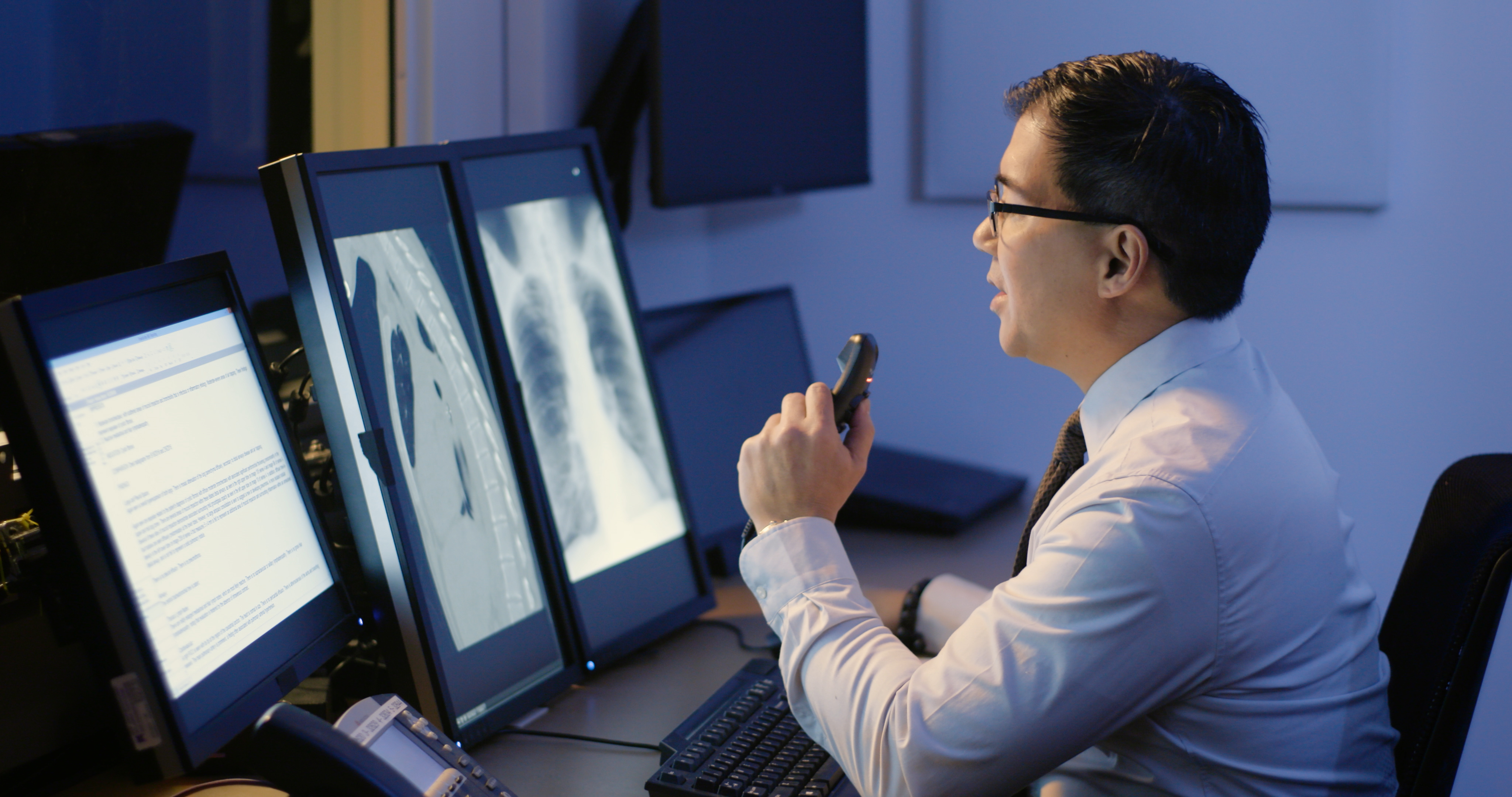Nuance’s recent webinar which explored the role of AI-powered speech recognition in Epic, demonstrated some of the key benefits this has in terms of productivity and driving the usage of the electronic medical record (EMR). The speaker panel included experts from Nuance, as well as Sint Jansdal Hospital in the Netherlands and Helsinki University Hospital in Finland who explained how this integration is helping to enrich patient records, while also simplifying clinical administration workflows and reducing the turnaround time of emails, referral letters and documentation.
Nuance recently hosted a webinar, which looked at the benefits of speech-enabling the Epic EMR with Dragon Medical One. If you missed it, here is what was discussed.
Dr Brian Zimmerman – Nuance CMIO and a physician working at an Epic hospital in Ohio – opened up proceedings by giving audience members a live demonstration of Epic and how speech can be used to support various aspects of the documentation process. A user of Epic since 2006, he was able to draw on his wealth of experience to highlight how the seamless integration of Dragon Medical One is relieving some of the administrative burden placed on clinicians.
Throughout his demonstration, Dr Zimmerman highlighted how the use of speech recognition in healthcare to produce clinical documentation is enabling clinicians to make significant time savings, without compromising on accuracy. He referenced that Dragon Medical One is “about more than just dictation.” It also enables clinicians to voice activate some of the usual processes they would use inside the Epic system. For example, you can add a clinical note template using just your voice.
These benefits are something that clinicians can experience no matter where they are based, thanks to Dragon Medical One being a secure, cloud-based solution. Users can access their single voice profile from different devices and locations, even when logging on from home. Of course, this has proved particularly useful during the ongoing Covid-19 pandemic.
Unparalleled accuracy across 22 hospitals in Finland
During the webinar we heard from two healthcare organisations which have implemented Dragon Medical in Epic and are witnessing some of the benefits mentioned above first-hand. Although both had different experiences in terms of roll out, there was one common theme once the technology was in place: the extremely high level of accuracy.
HUS Helsinki University Hospital in Finland first rolled out speech recognition in several of its sites in 2018. Speech recognition was well received by end-users at HUS but lacked some accuracy, particularly for Finnish compound words. Miika Pitkänen, Application Analyst and Karri Järvelin, System Designer, explained this was why HUS decided to upgrade their speech software to AI-powered, Dragon Medical and to coincide with their rollout of Epic. Miika revealed they were particularly impressed with the way that Dragon Medical navigated Finnish – a language which is notoriously difficult to transcribe.
This positive experience led to the Hospital rolling out Dragon Medical and Epic for all clinicians across its 22 hospitals and 24 member municipals simultaneously in 2020. Despite taking place during a global pandemic, this mass roll out has been a major success and adoption rate is currently over 85%, with speech recognition being used by around 2,500 users. The HUS team achieved this high adoption rate by presenting front-end speech recognition as the primary way to dictate and create patient documentation in Epic. They did not advertise back-end or digital dictation as options, although they were still available just in case.
The gift of time for Radiologists at Sint Jansdal Hospital
Dr David Blom, Radiologist, and Mr Arnout van den Hoek, Application Manager Radiant, at Sint Jansdal Hospital in the Netherlands had a slightly different roll out experience. They were replacing G2 speech in Radiant (the Epic Radiology Information System) and the entire implementation process needed to take place over just a couple of months.
Despite this time pressure, the team were impressed with how quickly Dragon Medical One – which is currently being used by radiologists across the hospital – was up and running. As well as the high level of clinical accuracy and ease of use, they sign-posted the fact that no productivity was lost during the implementation process. The team are already seeing the benefits of incorporating these technologies into their everyday lives and estimate that between 30–50 minutes are now being saved on average each day.
Ultimately, we need to take care of clinicians so they can take care of us. This has never been more important than it is today, with the pandemic increasing the already worrying burnout levels throughout the sector. Advancements in healthcare technology, such as AI-powered speech recognition are changing the game when it comes to clinical documentation, relieving some of the administrative burden and granting clinicians the gift of time. As Dr David Blom summarised, “it’s always good to be home in time for dinner.”
Thank you to all those who attended this webinar and to our expert speakers for sharing these insights.







